Lady Seeks Help Online As Her Roommate Went Ahead To Foster A Dog That's Reactive Around People Without Her Knowledge
When a dog starts barking frantically at the sight of another dog or a human, you have to haul it away, as it's no longer a peaceful stroll. This behavior indicates that the dog is reactive; that is, it overreacts to everyday events that other dogs might find acceptable.
Although reactive dogs may not always become violent, it is crucial to pay close attention to training since reactivity can develop into hostility. Common triggers unnecessarily agitate reactive dogs, and they can become so engrossed in whatever is causing the feeling that it can be hard to manage and get out of the way.
They might lunge, bark, and growl, so typically, a reactive dog is a scared dog. Although genetics may play a role, poor socialization, negative experiences in the past, or a lack of training are more likely to be the causes.
In today's story, OP's roommate went ahead to foster a Pitbull dog after eight years of extensive trauma and neglect. The shelter indicated that she is unsafe around other dogs but great with people.
Well, it turns out she can behave aggressively towards people as well, and the dog has cornered OP on numerous occasions. There are times when OP feels unsafe leaving the room because she can hear the dog becoming really reactive downstairs.
Moving out isn't an option for the time being, so OP is requesting advice online.
The OP writes
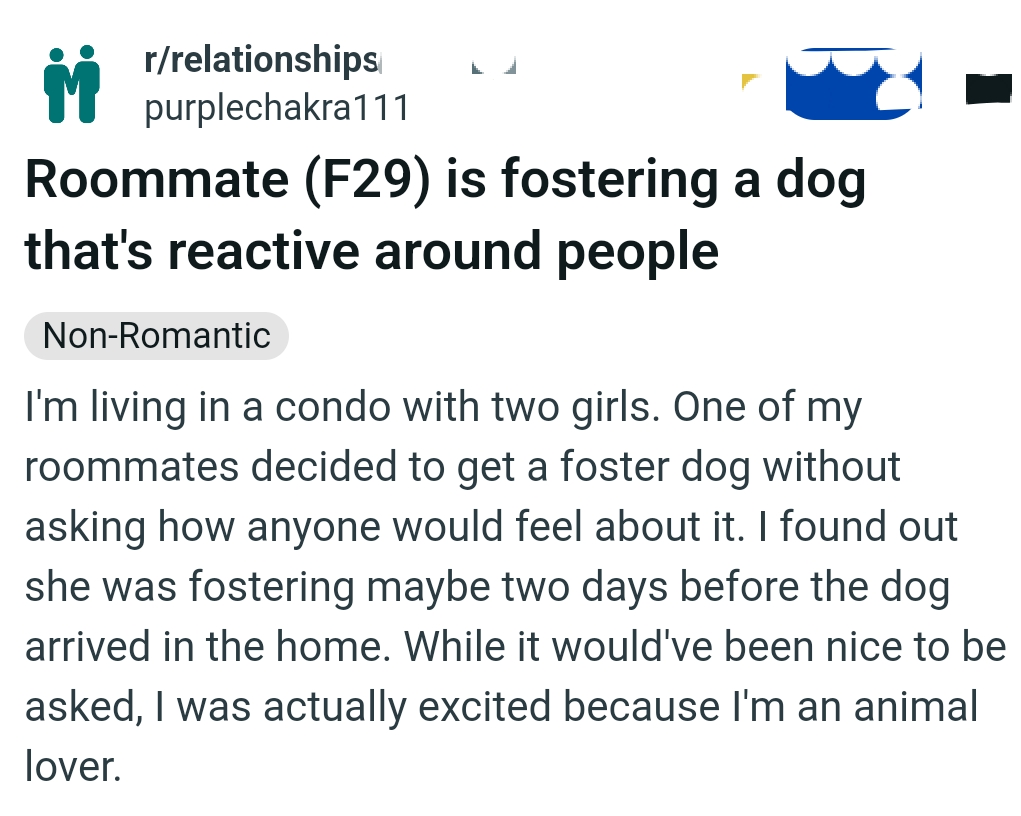
The dog has also cornered their other roommate against the wall
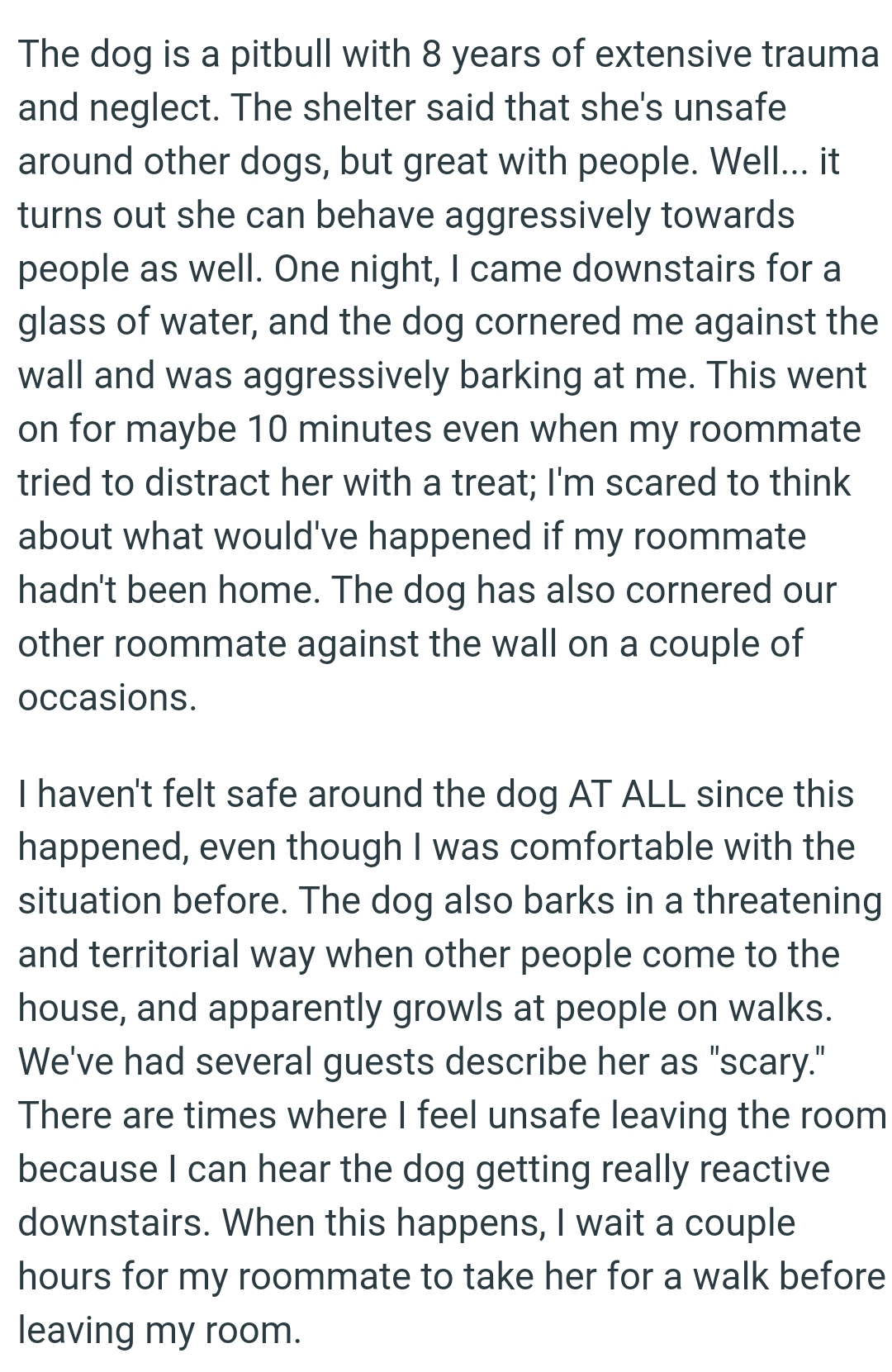
She has been mostly respectful about keeping the dog on a leash
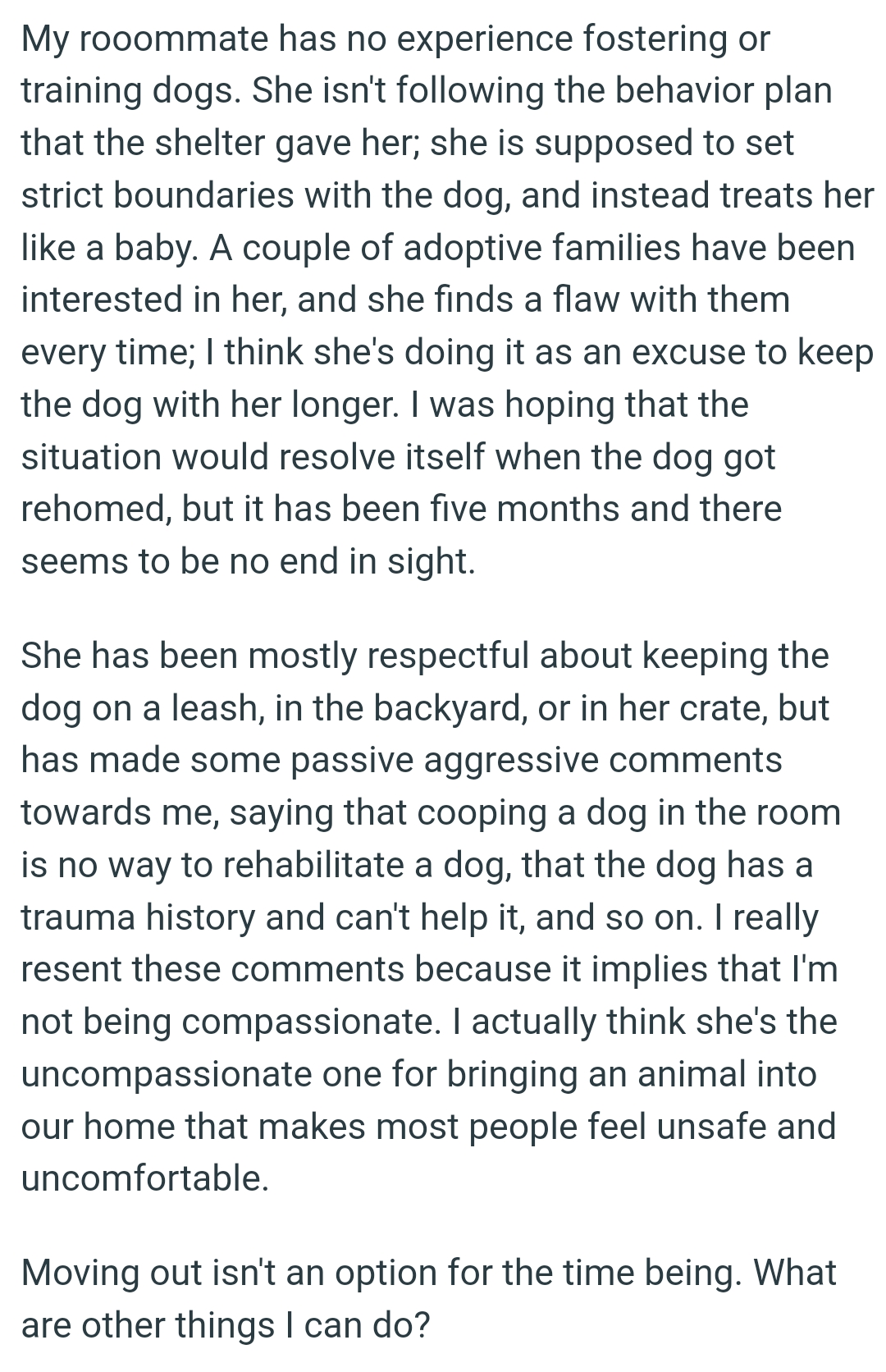
Understanding Conflict in Shared Living Situations
Living with roommates can introduce unique relational dynamics, especially when it comes to shared responsibilities like pet care. Research in social psychology highlights that conflict often arises from differing expectations and communication styles. When a roommate makes unilateral decisions, such as fostering a reactive dog without consulting others, it can lead to feelings of betrayal and frustration.
Studies show that clear agreements about responsibilities and communication protocols can help mitigate these conflicts. Establishing boundaries around decision-making processes is key to maintaining harmony in shared living situations.
And the comments from other Redditors roll in...
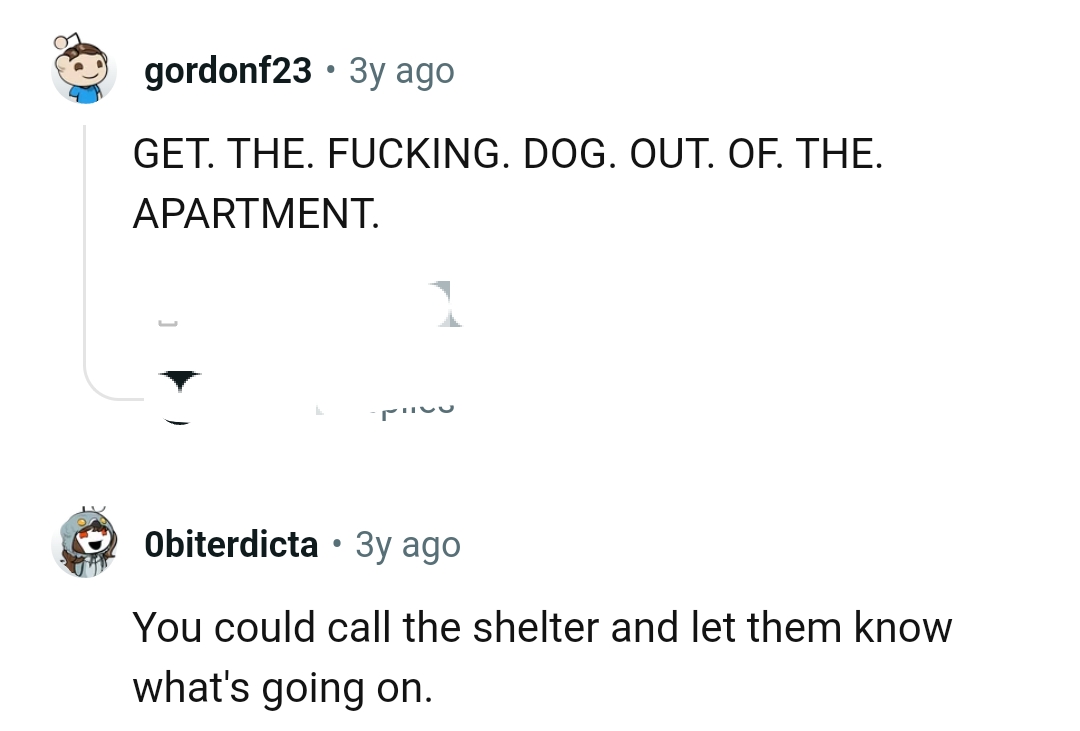
The rescue needs to come get the dog
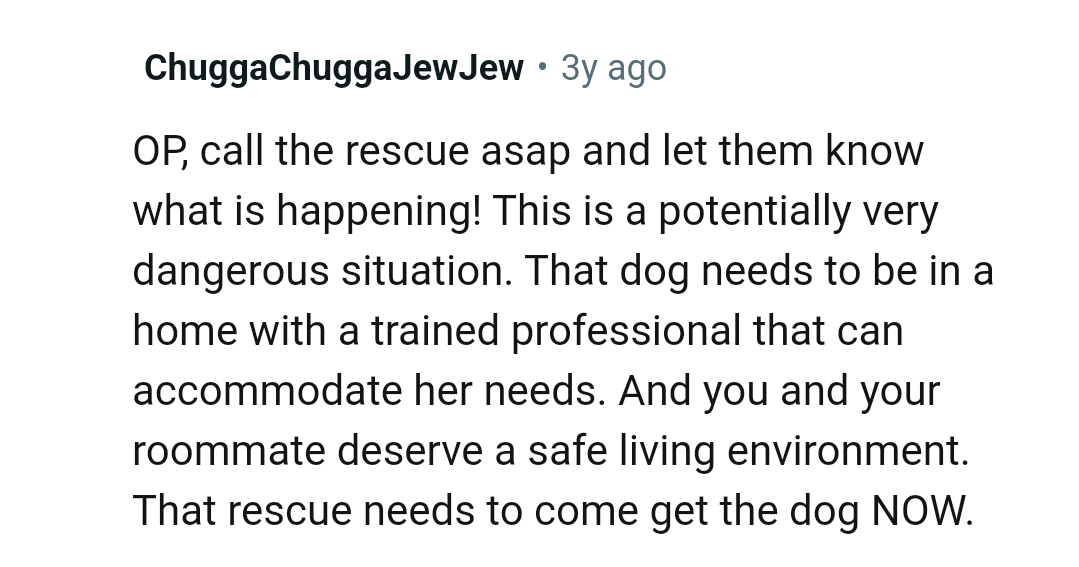
Telling the landlord that there's an aggressive dog
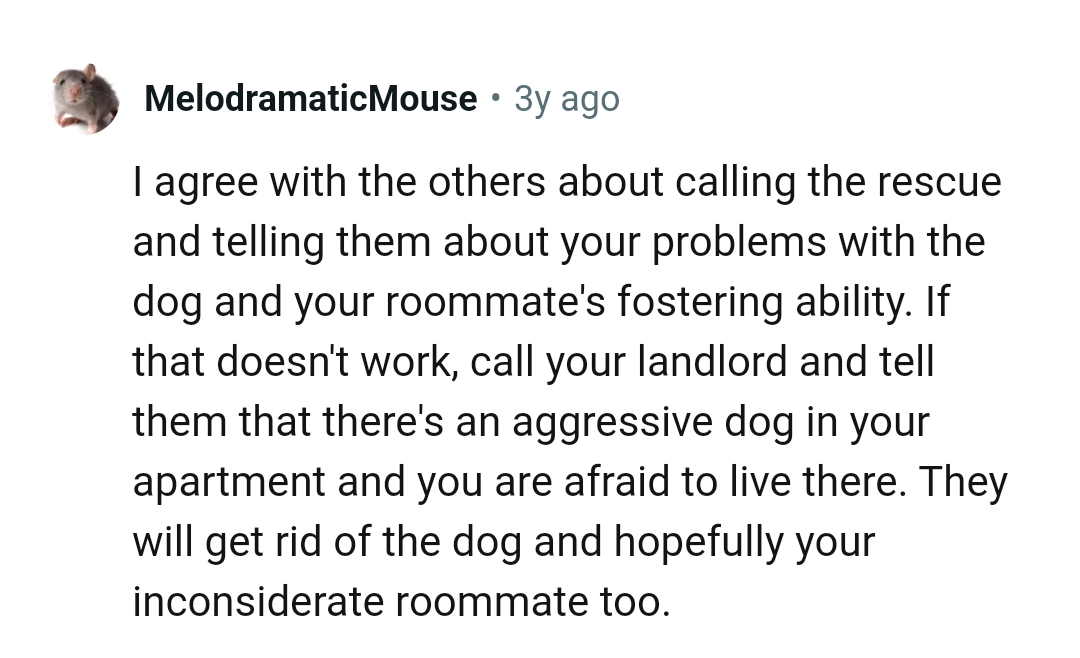
The emotional impact of this situation can also be quite profound. Research indicates that feeling disregarded in shared living arrangements can lead to a sense of powerlessness and resentment. The roommate's actions may have triggered feelings of insecurity for the individual who felt left out of the decision, reflecting a common dynamic in shared living situations.
According to findings published in the Journal of Social Issues, the importance of communication and inclusivity in shared spaces cannot be overstated.
It's an awful outcome waiting to happen
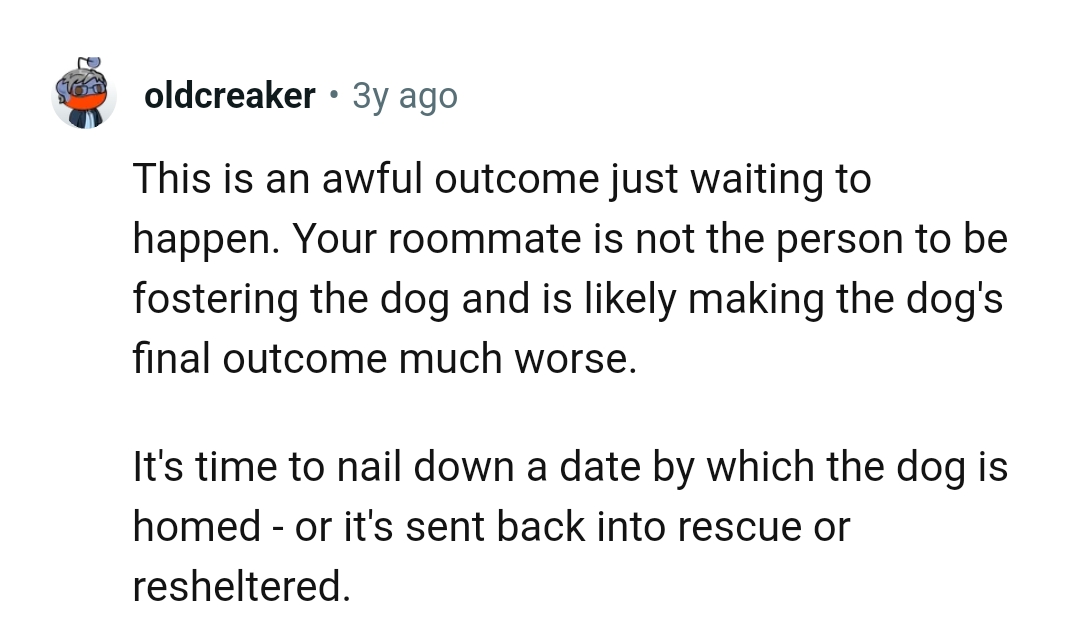
The OP leaves more details in the comments section
I was honestly shocked that the shelter allowed a dog to join our household without getting everybody's approval. It also would have made sense for all three of us to be involved in the rehabilitation process since we all live here, so I was surprised that we were never given instructions for what to do or not do.
I also know that my roommate told them about the dog cornering me, and they adjusted the behavior plan for the dog instead of removing her, which also shocked me. A house with three girls and lots of people coming in and out feels like a nightmare situation for a dog with this type of background.
She's making the dog's behaviour worse
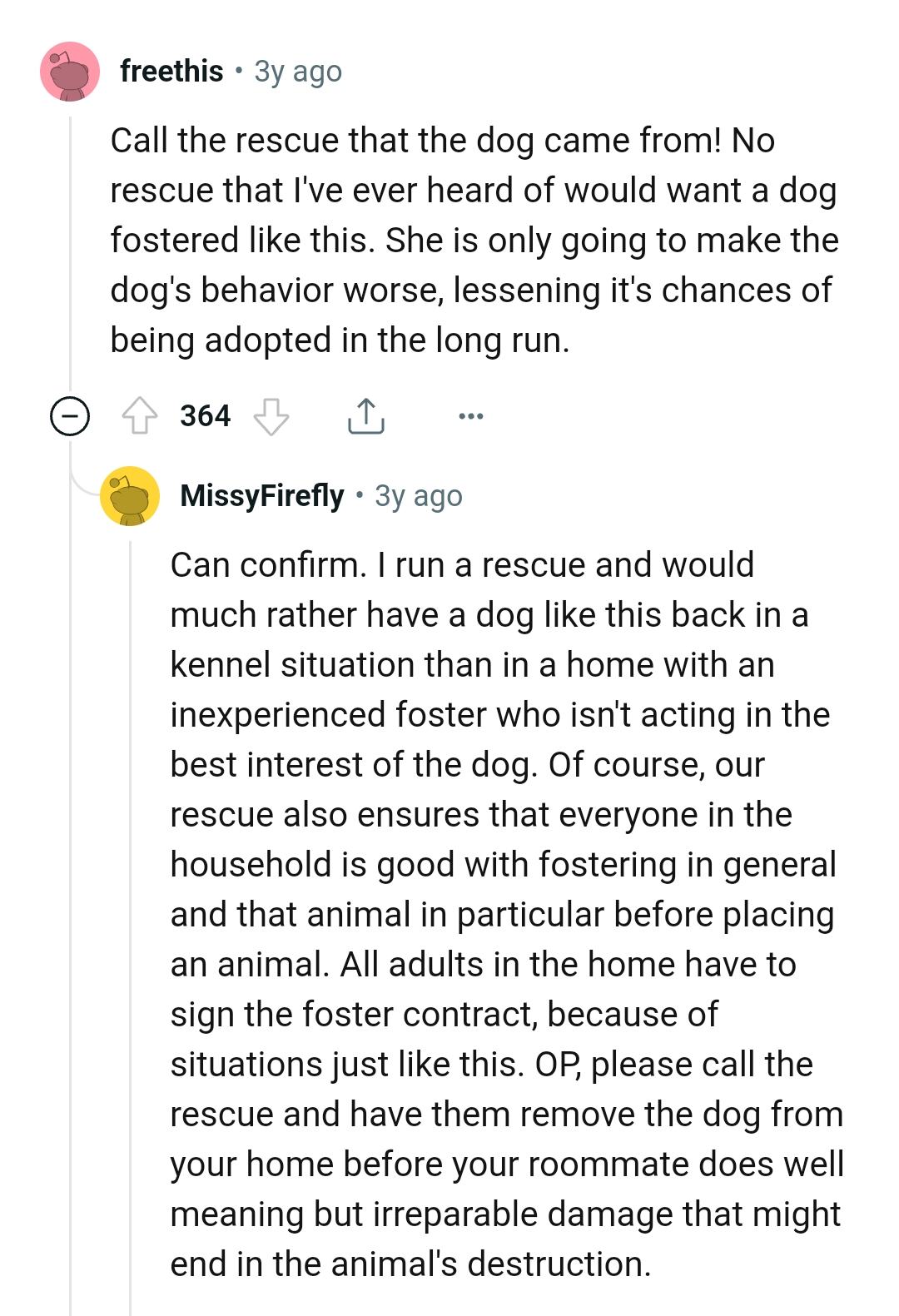
The OP's obligated to call the shelter
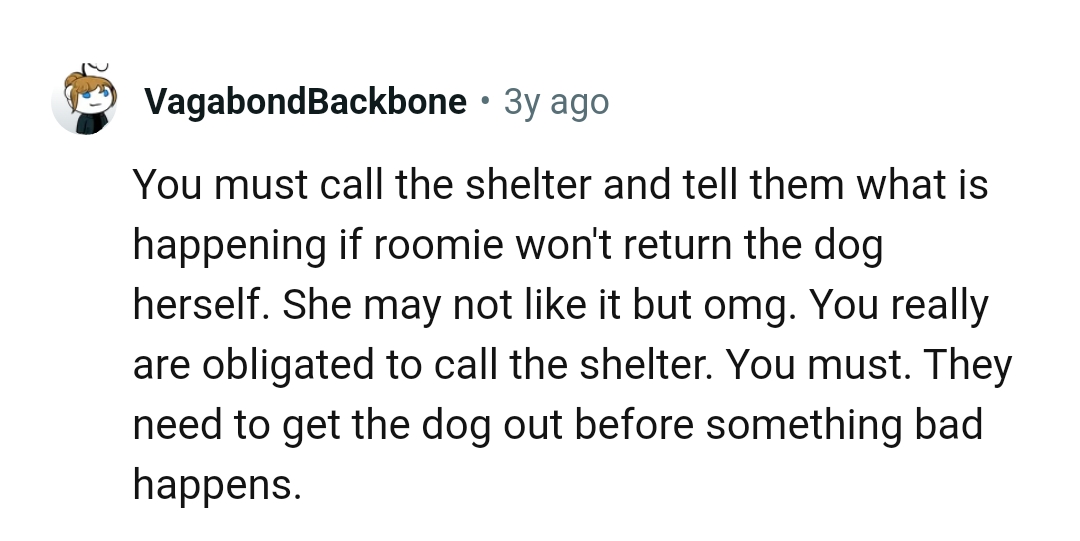
The Role of Communication in Roommate Relationships
Effective communication is essential for resolving conflicts in roommate situations. A study by Dr. Marshall Duke at Emory University emphasizes that open and honest dialogue can prevent misunderstandings and foster a sense of community. When roommates fail to communicate effectively, it can lead to feelings of isolation and conflict.
Encouraging regular check-ins to discuss concerns can significantly improve the living experience. This proactive approach can help individuals express their feelings and expectations, facilitating healthier interactions.
The dog needs a better home
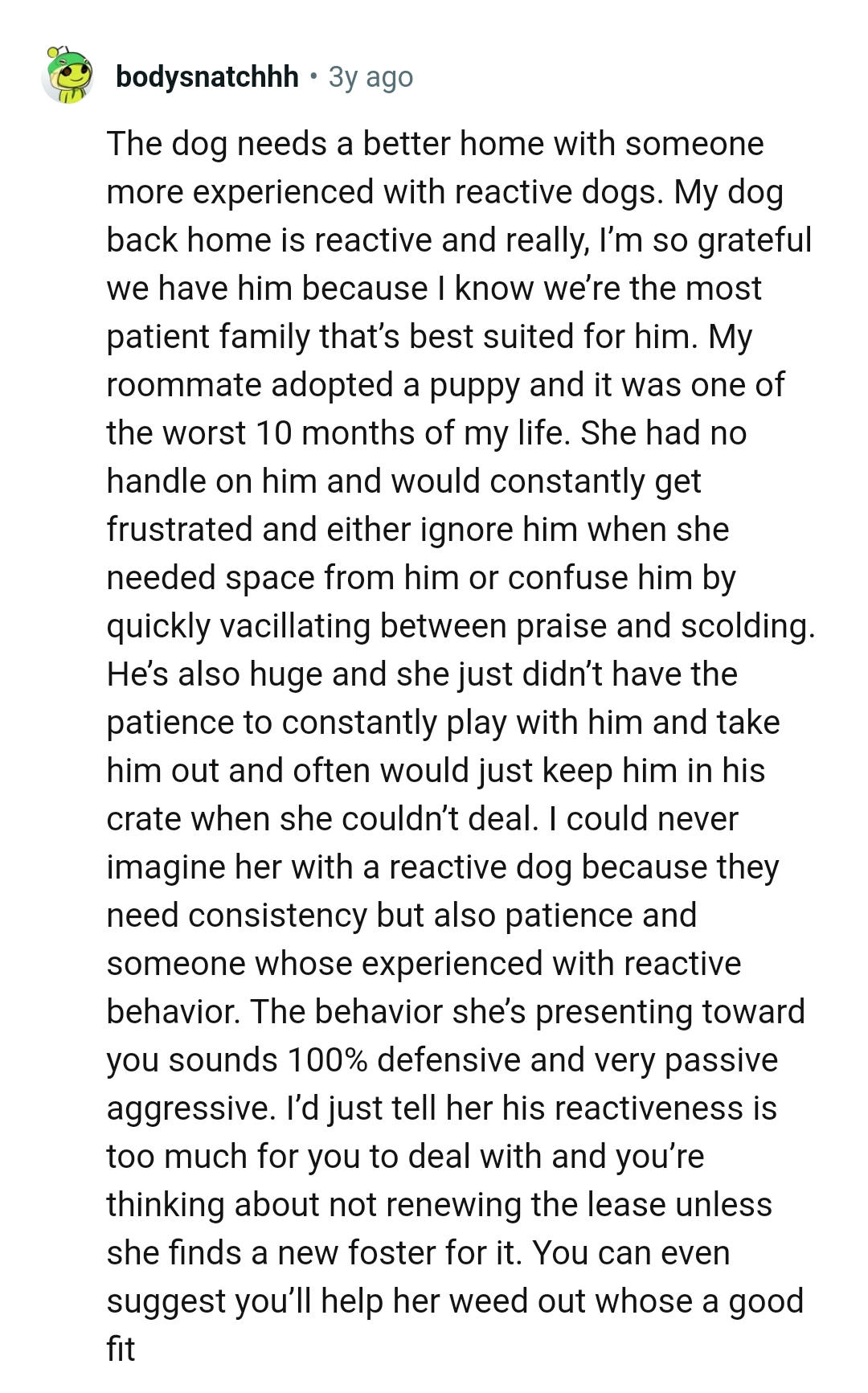
Calling animal control
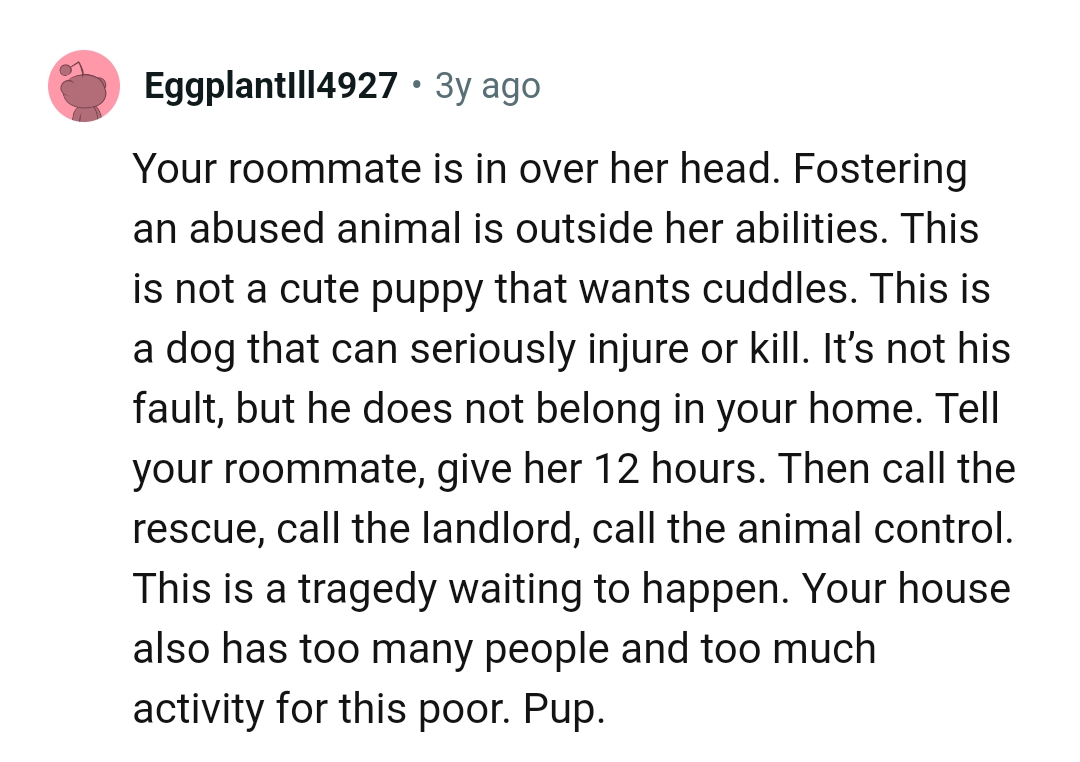
Making them take the animal back

To address the current conflict, it may be beneficial for roommates to sit down and discuss their feelings and expectations regarding pet care. Research shows that using 'I' statements can help reduce defensiveness and promote understanding. For instance, saying 'I feel anxious about the dog's behavior' opens up a dialogue rather than placing blame.
Additionally, establishing a clear framework for decision-making regarding shared responsibilities can help prevent similar conflicts in the future, ensuring that all parties feel respected and heard in their living environment.
Reactive dogs should be treated carefully because they can be provoked into aggression.
Avoidance isn't a long-term fix, so the long-term solution is behavior modification and counter-conditioning, which will provide the dog with coping mechanisms to handle stressful circumstances and help make its triggers less frightening. Leave your advice for OP in the comments section below.
Psychological Analysis
This situation highlights the importance of communication and shared decision-making in roommate relationships. When one person makes unilateral decisions, it can lead to feelings of resentment and conflict, underscoring the need for mutual respect and collaboration.
Analysis generated by AI
Analysis & Alternative Approaches
In conclusion, effective communication and clearly defined responsibilities are crucial for maintaining healthy roommate relationships. When conflicts arise, addressing them collaboratively can lead to a more harmonious living situation. Experts agree that fostering open dialogue and mutual respect is key to resolving misunderstandings and enhancing the living experience.



